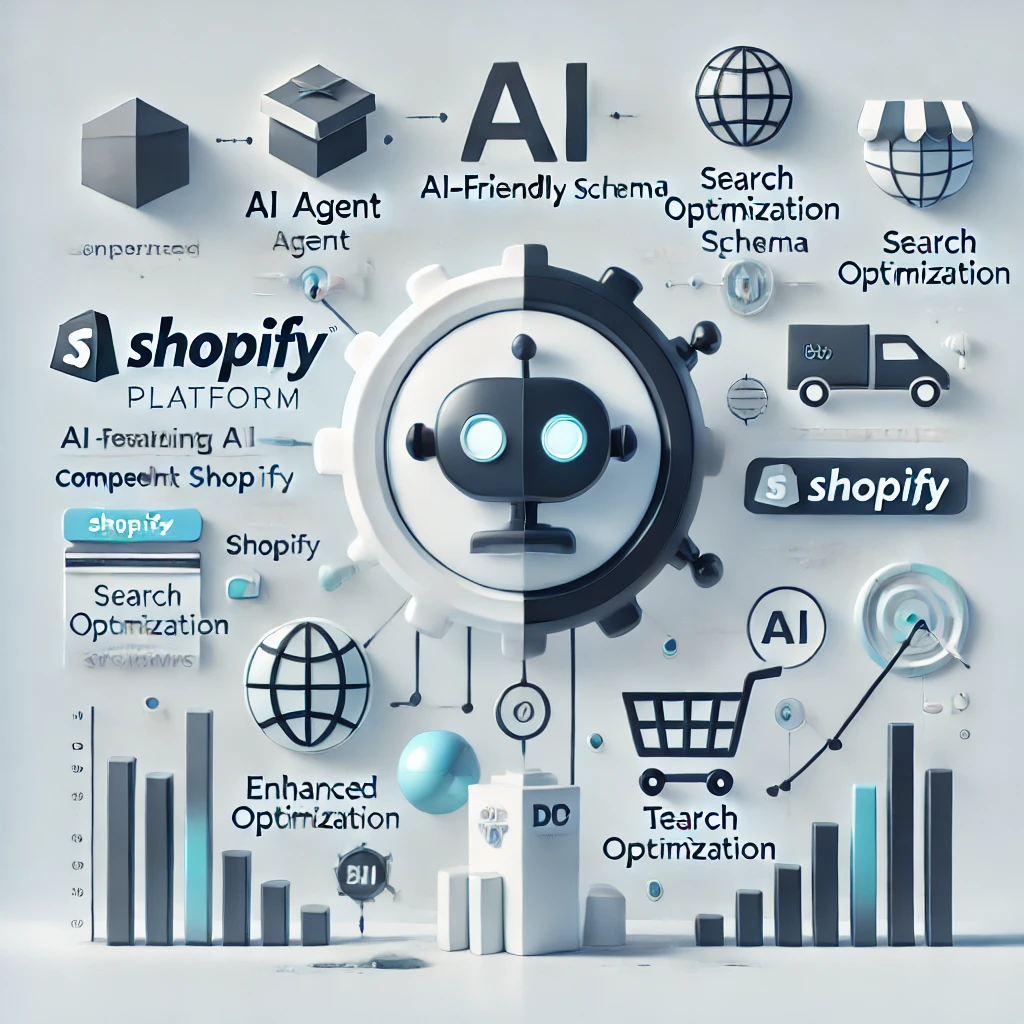1. Securing Traffic Through AI Search Optimization
(1) Priority Exposure with AI-Based Search Engines
- By using AI-friendly schemas (e.g., JSON-LD), product detail pages are better recognized by search engines (including AI search) and have a higher chance of priority exposure.
- For example, through structured data, key information such as product name, price, stock status, and user reviews can be accurately delivered to AI and search engines, achieving better search rankings.
- This effectively compensates for initial traffic acquisition, which is often considered a weakness of Shopify.
(2) AI-Friendly Natural Language Search
- AI Agents can understand natural language queries from users (e.g., "Recommend running shoes suitable for me") and match them with product data on the DC platform, providing the information users need.
- This improves accuracy and user satisfaction compared to traditional keyword-based searches and delivers an AI-optimized shopping experience.
(3) Integration with Recommendation Systems
- AI Agents can analyze user search and purchase history to offer personalized product recommendations.
- AI-based recommendations increase repurchase rates and user engagement, contributing to increased platform traffic and sales growth.
2. AI-Optimized Product Detail Pages
(1) Providing Customized Information
- AI-friendly schemas can dynamically display tailored information on product detail pages based on user preferences.
- Example: "This product is 10% cheaper than similar products you recently searched for."
- This emphasizes product value and relevance to users, increasing conversion rates.
(2) Real-Time FAQ and Customer Support
- AI Agents integrated into product detail pages can provide real-time answers to user inquiries (e.g., shipping times, size comparisons).
- This reduces user drop-offs and helps users make faster purchase decisions.
(3) Multilingual Support
- AI Agents can automatically generate multilingual and culturally optimized product detail pages, ensuring a high-quality user experience in global markets.
- This plays a crucial role in global expansion and matches Shopify’s global scalability.
3. Traffic Acquisition and Reduced Marketing Costs
(1) Reduced Dependency on Search Advertising
- AI-optimized product pages can maintain high rankings in organic search, reducing reliance on paid advertising.
- This significantly cuts marketing costs, providing a competitive edge for small and medium-sized sellers.
(2) Automated SEO Management
- AI Agents can perform automated SEO strategies based on product data.
- Examples: inserting optimal keywords, generating metadata, and optimizing page speed.
- This allows sellers to achieve effective search optimization without the need for SEO experts.
(3) Activating Community Traffic
- By dynamically updating product pages using user reviews and Q&A, AI Agents increase user engagement.
- Example: Providing real-time information like, "3 customers recently purchased this product" builds trust and credibility.
4. Differentiated AI-Based Purchase Experience
(1) Conversational Shopping Experience
- AI Agents offer interactive interfaces (e.g., chatbots or voice AI) on product detail pages, allowing users to conveniently explore information and make purchases.
- Example: Answering real-time questions such as, "When will this product be restocked?"
(2) Providing Interactive Content
- Using AI, product detail pages can offer virtual simulations that users can interact with (e.g., virtual try-ons for clothing, furniture placement previews).
- This delivers a unique customer engagement experience that differentiates DC from Shopify and Amazon.
5. Additional Advantages and Differentiators of DC
(1) Maintaining Brand Ownership
- Like Shopify, DC supports independent store operations while providing sellers ownership of customer data, enhancing brand management and direct marketing capabilities.
(2) Data Integration and Analysis
- AI Agents analyze integrated product and customer data to provide insights for optimizing product sales strategies and marketing campaigns.
- This helps small and medium-sized businesses effectively utilize data.
(3) Automated Store Management
- AI Agents automate tasks such as product registration, inventory management, and price optimization, increasing operational efficiency for sellers.
- This is particularly beneficial for sellers operating with small teams.
6. Summary: DC’s Strengths in Addressing Shopify’s Weaknesses
| Shopify Weaknesses |
DC’s Complementary Strengths |
| Difficulty in Traffic Acquisition |
Securing organic traffic through AI Search Optimization and automated SEO |
| Lack of Logistics and Shipping Infrastructure |
AI Agents providing real-time logistics and shipping updates to customers |
| High Advertising and Marketing Costs |
Reduced dependency on paid ads through AI-driven recommendations and optimized product pages |
| Global Scalability and Multilingual Support |
AI-based multilingual translation and cultural optimization for global user experience |
| Simple Product Page Structure |
AI-friendly product pages with personalized information and real-time FAQ |
Conclusion
By leveraging AI Agents and AI-friendly schemas, the DC platform effectively addresses Shopify’s weaknesses. Specifically, DC provides traffic acquisition, search optimization, and differentiated purchase experiences, offering unique value to both sellers and customers. This positions DC as a competitive and independent e-commerce platform capable of strengthening its presence in the global market.

댓글쓰기